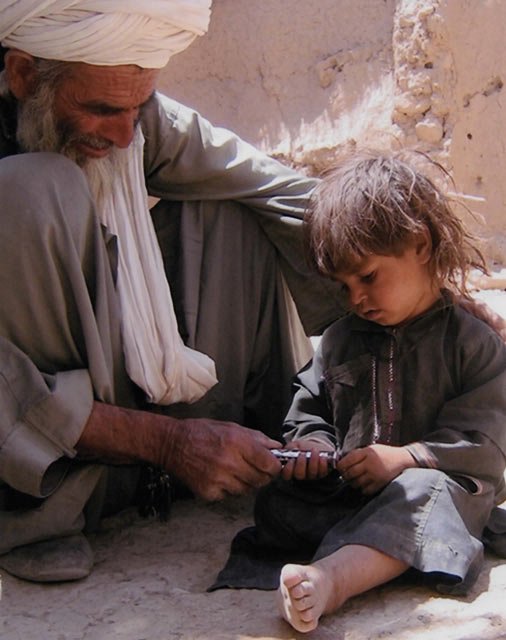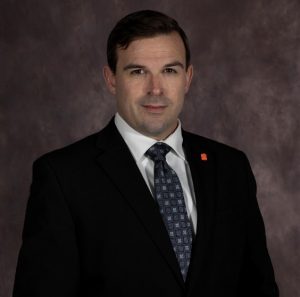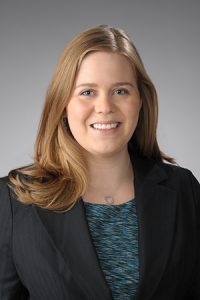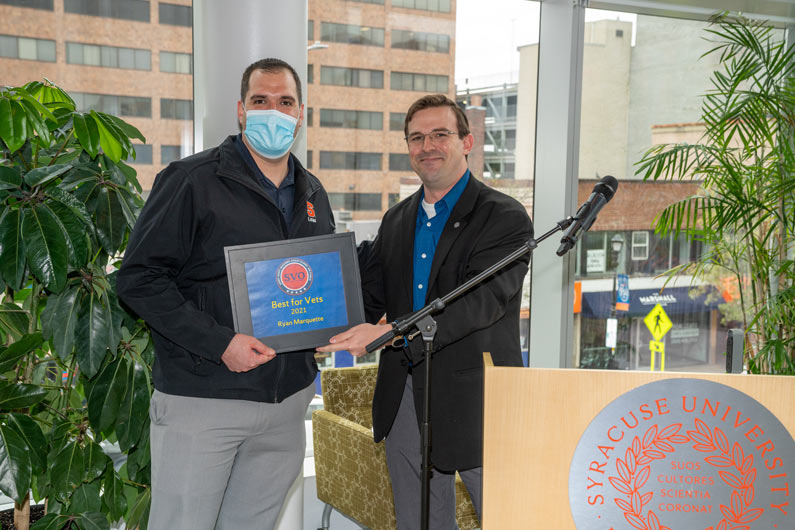by: Quinn VanAntwerp
 Charlie Poag has a photo on his wall from his time serving in Afghanistan. It isn’t of tanks or of troops or of a memorable fire fight from his tour there. It is of a small Afghani boy of maybe three or four sitting on the ground with his grandfather leaning over him. The boy is distraught as soldiers search his family’s home, but the toddler is intrigued by a large chocolate bar that the elderly man is helping him open.
Charlie Poag has a photo on his wall from his time serving in Afghanistan. It isn’t of tanks or of troops or of a memorable fire fight from his tour there. It is of a small Afghani boy of maybe three or four sitting on the ground with his grandfather leaning over him. The boy is distraught as soldiers search his family’s home, but the toddler is intrigued by a large chocolate bar that the elderly man is helping him open.
After almost twenty years of war, veteran students at Syracuse University will mark the 20th anniversary of the Sept. 11th attacks this week seeing images of an Afghanistan that once again looks very similar to the one they fought so hard to change.
“This photo is the only way that I have found to describe it for myself,” Poag says. Poag knew the boy’s father could be fighting against him or he could have already been one of the many casualties both sides suffered in the struggle for Afghanistan’s future.
“He’s probably in his early twenties now, he’s the age of a bunch of kids that I am in classes with at Syracuse University. I can’t begin to fathom the world he has grown up in.”
 Poag, 38, is one of thousands of student veterans who attend Syracuse University on the post 9/11 G.I. Bill. Syracuse University has been a strong supporter of the G.I. bill since it was created in 1944 to help veterans get access to higher education after WWII . Syracuse University’s seventh Chancellor, William Pearson Tolley, was one of the original GI Bill’s authors and although many current undergrads at Syracuse University may have not been alive when the war in Afghanistan began, because of student veterans in the community like Poag, Syracuse University has been continually shaped by their service.
Poag, 38, is one of thousands of student veterans who attend Syracuse University on the post 9/11 G.I. Bill. Syracuse University has been a strong supporter of the G.I. bill since it was created in 1944 to help veterans get access to higher education after WWII . Syracuse University’s seventh Chancellor, William Pearson Tolley, was one of the original GI Bill’s authors and although many current undergrads at Syracuse University may have not been alive when the war in Afghanistan began, because of student veterans in the community like Poag, Syracuse University has been continually shaped by their service.
Under the Post 9-11 G.I. Bill, service men and women who qualify are eligible for what amounts to the equivalent of a free four-year degree. Federal education benefits also allow veterans who do not use their benefits to pass their free education along to their spouses and children when they meet specific criteria.
 Lauren Pyland, who is the Operations Manager in the Office of Veterans and Military Affairs (OVMA), the organization that gives support and advising to student veterans and military-connected family members, says they bring a huge amount of life experience to Syracuse University.
Lauren Pyland, who is the Operations Manager in the Office of Veterans and Military Affairs (OVMA), the organization that gives support and advising to student veterans and military-connected family members, says they bring a huge amount of life experience to Syracuse University.
“Our veteran and military-connected population here is so varied. We have everything from the 18-year-old ROTC cadet, to the 40 or 50 year old veteran getting a masters degree, a military child, and everywhere in between. So, you have people from all different walks of life and they really have a very diverse world view,” she said.
“They’re not traditional students in the fact that they have had this whole life before they came here,” Pyland said. “They have had a career, they may have deployed, they may have families, and work full time. They bring a lot of richness to the classroom.”
But Pyland also knows making the transition from the military to the classroom can be a challenge and so she is proud of the resources that Syracuse has built over the years to help support that transition. Among those investments is a brand-new building slated for grand opening in November, the National Veterans Resource Center at the Daniel ’68 & Gayle D’Aniello building which houses all on campus veterans’ organizations such as the OVMA to include the Office of Veteran Success and Veteran Career Services, as well as the IVMF, which offers national career preparation training programs for veterans and military spouses around the country.
Ryan Marquette, an eight-year Army veteran and current Syracuse University law student, says making the transition without these programs would be challenging.
“You come back in and you’re a little more mature. Your life experience is usually much different than your traditional student,” Marquette said.
And as service men and women come home from America’s longest war, veteran programs like Syracuse University’s will continue to be a valuable and necessary resource for those in our community making the transition from service to civilian.
“When I hit law school it was like I was trying to now take my uniform off and become someone that I wasn’t. But by being committed to the student veteran organization, I came to the realization that this is who I am, I am a veteran and I am not going to hide that. I am going to embrace that.”

